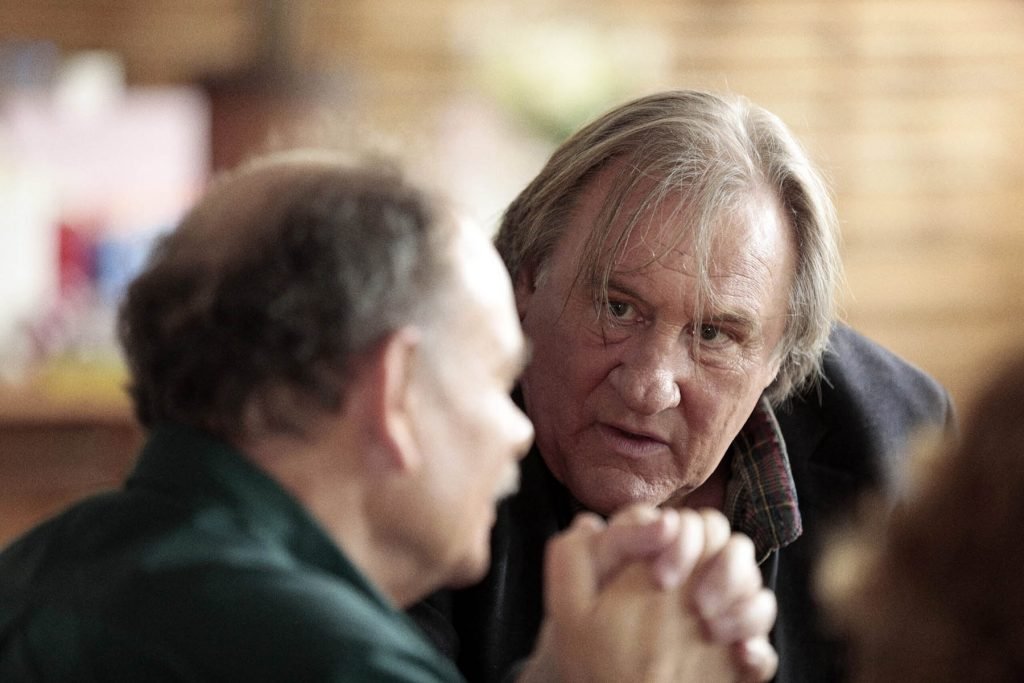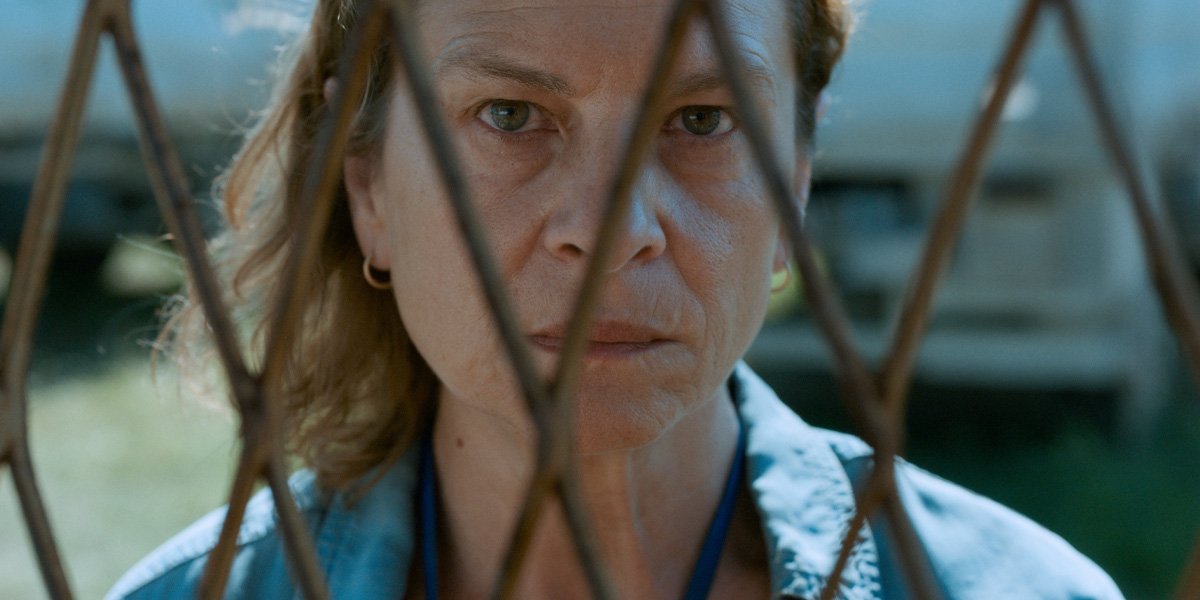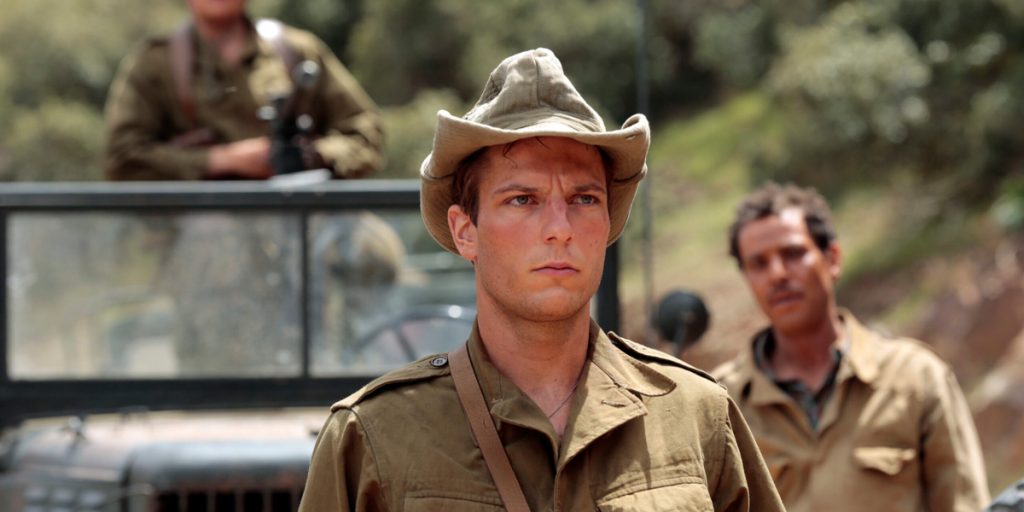Lucas Belvaux’s Home Front is an intimate, affecting portrait of the ways in which the psychological wounds from war impact the lives of two French soldiers.
“I’ve seen the horrors, horrors that you’ve seen.” While Marlon Brando’s Colonel Kurtz was referring to Vietnam, the opening line of his blistering monologue in Francis Ford Coppola’s Apocalypse Now is equally as relevant for Lucas Belvaux’s Home Front – Des Hommes in the original French –, an intimate film about the psychological ramifications the Algerian War had on the French who fought in it.
Bernard (Gérard Depardieu) lives with his dog on a dilapidated farm in rural France. His drinking and racism have made him an outcast in his small village, with only his sister Solange (Catherine Frot) and cousin Rabut (Jean-Pierre Darroussin) having any patience left for him. After a drunken outburst at Solange’s birthday party leads to a violent altercation with a local family, it seems Bernard has used the last of his chances. As the three await police repercussions due the next morning, the film flashes back to the events of the Algerian War through letters written to Solange, and the memories of Bernard and Rabut (played in flashback by Yoann Zimmer and Edouard Sulpice, respectively), revealing the traumas suffered and offering explanations – if not justifications – of Bernard’s behaviour and the state of their relationships with each other.

Home Front is a film about the psychological wounds of war, about how trauma can fester and manifest years after the fact. Bernard and Rabut haven’t been soldiers for over 40 years, but the war still impacts their daily lives in significant ways. Bernard starts the war as someone with a cruel tongue who diligently doesn’t drink, and becomes a hard drinker with a violent temper. And the more cerebral Rabut can’t sleep at night now, lying awake and silent so as not to disturb his wife, overcome by memories of the things he experienced. It is a visceral, intimate and unflinching look at how the weight of guilt, shame and silence can overwhelm anyone, in different ways.
At how some succumb to the pressure and let it spill over, and others resolutely keep it bottled in. Bernard’s letters to Solange tell of the brighter moments, but deliberately leave out the darkest parts: the blood and violence and chaos and death. Rabut and Bernard’s relationship crumbles as the war takes its toll on them, flares tempers and loosens inhibitions. And the men question how they were meant to go back to ‘normal’ afterwards, who they were meant to tell these harrowing stories to. It’s a poignant reminder of the importance of mental wellbeing, as well as physical.
Belvaux doesn’t shy away from depicting Bernard exactly how he has become, bitter and hardened by his unresolved PTSD and clinging to racist beliefs as a means of keeping the complicated war at bay. Nor does he make any attempt to justify Bernard’s actions, he simply provides a deeper understanding of the invisible wounds war can leave behind. French cinematic stalwart Depardieu gives a fantastic performance of a man twisted up by his own experiences and emotions, a man that succumbed to some of the worst aspects of his personality.
But he keeps Bernard’s humanity, shows that internal struggle in the subtleties of his face. It’s a performance trait echoed by Zimmer, who is impressive as a young soldier struggling with the burden of war and how it is shaping him as a man. It’s a burden that Bernard describes as “a true life sentence, until the final breath” as he sits alone, as an old man, in front of a crackling fire. As Solange rereads the letters and tries to piece together what Bernard has kept from her, and Rabut lies awake in the darkness. It is a burden that has shaped a generation of men in both France and Algeria, and the way Belvaux intertwines the individual voice overs of Depardieu (and Zimmer) and Darroussin (and Sulpice) to be almost conversing, shows how these stories are so personal and private, and yet collective and communal.
Home Front is a raw, affecting depiction of how long-held grudges and painful reconciliation with the things war forces one to do shape a person, in ways not always for the better. It is a war film that focuses on the specific psychological damage, rather than the physical or the political.
Home Front was screened digitally at the French Film Festival @ Home on Friday, 19th March, 2021.

 loudandclearreviews.com
loudandclearreviews.com
